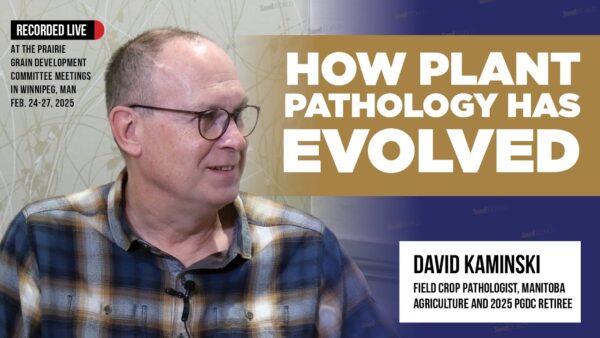Seed industry veterans from across sectors discuss three keys to success when looking to enter new markets, whether it’s here at home or across borders.
Globalization. It’s a word that gets thrown around, but what can independent seed companies do to better compete in an ever-more global world?

“People have to realize agriculture is global,” says R.B. Halaby, AgriCapital chairman and founder. “There’s no more United States, or Canada, or Europe; it’s truly one shrunken globe.”
He attributes this to consumer demand, new technology and globalization.
“Even if you’re a small company, prices might be affected by what’s happening in Brazil,” Halaby says. “Global trends stop at no border. Your competitors are probably global companies, so they might bring to bear in your backyard something they have done in France or Germany or China. Your business is affected every day by global trends.”
Jerry Monk, CEO of Texas-based Warner Seeds; Mike Gumina, CEO of RiceTec; and Tim Johnson, president of Illinois Foundation Seeds Inc. (IFSI), all operate in global markets with a focus on sorghum seed, rice seed and corn seed (both sweet and dent), respectively.
They all agree it’s critical, when entering or working in another market, to be connected locally and to understand the business climate and culture.

“Learn about the big issues important in the country you plan on doing business,” Johnson says. “Sometimes countries have very good intellectual property laws, sometimes they don’t. Is it easy to move seed into the country based on phytosanitary issues? Can you extract profit and bring the money back into the United States?”
Johnson, who is a former president of the International Seed Federation, closely examines those facets before he will even consider moving a kernel of seed. He also studies the relationship and status of potential partners.
“Do we have someone who can be a good partner that we can trust?” he asks. “Are they stable financially? It’s crucial to look at those before you dive in. Someone might ask, ‘can you send us 20 hybrids to evaluate?’ We won’t do that unless we can have a good contractual relationship, and there is trust.”
Gumina says one key to expansion, be it domestic or abroad, is to really understand the markets and the customers and how your products meet their needs.
“That’s fundamental,” he says. “If you have products that can meet needs in different geographies around the world, that creates an opportunity for you.”
The second thing, Gumina says, is talent. “When you expand, you naturally have an opportunity to tap into a new pool of talent for your research and production divisions that you otherwise wouldn’t come into contact with, and that allows you to find talent and create all those synergies you wouldn’t be able to find otherwise.”
Johnson, who is part of a global foundation seed company, is challenged to find partners around the world and license products to them.
“Instead of developing a sales force, we partner with those we know we can work with. They really know the environment of that country, and they have systems set up to work within that environment.
But Johnson, Gumina and Monk say that it’s important to enter new markets with a long-term mindset and be prepared to endure volatility.
Endurance Required

“We must have a long-term vision and commitment to the part of the world where we want to do business,” Johnson says. “We want our partners to be established in the country or area, know the area and know the system, because it’s going to take time to develop that business.”
Warner Seeds, which operates in Mexico, Argentina and the Americas, is vertically integrated in the grain sorghum business. “We try to be involved wherever our products perform,” Warner says, noting that success tips the scales in both directions, depending on the country and year. “Logistics are always a concern.
“The largest challenge in the past few years has been the exchange rates compared to the American dollar in multiple countries. There are many interesting sorghum markets around the globe, but make sure you weigh your risk-reward factor very carefully.”
Like anything, Gumina says there’s going to be big swings and some volatility in your outcomes.
“You have to have patience and tolerance for risk,” he says. “You might have huge success right off the bat, and then something comes in and hits you from the side you didn’t expect.
“An example is in Brazil. We’ve seen exchange rates on the U.S. dollar drop by about 50 percent during the past year. Having a diversified portfolio across nations can moderate risk over time. When you’re in startup mode, it does create risk within your system. You must have patience and a tolerance for that kind of risk.”
Interconnected

Another thing to be aware of is how interconnected the world, economies, markets and even businesses are.
Halaby says when he started in the business more than three decades ago, his primary worry was what neighboring companies were doing and how farmers were doing, which was determined mostly by local or national conditions.
“You looked at your backyard and that was enough,” Halaby shares. “Now, what’s happening in Iowa is affected by what’s going on in Europe in terms of technology and know-how.”
He says the seed business has always been very worldly and sophisticated.
“Within seed, you have different types of crops that are more global than others,” he says. “Look at vegetable seed, which is highly global. If you look at seed corn and soybeans, it’s the same. You have a great deal of value per seed. If you look at farm seed, that tends to be more local. The more valuable the seed is, the more global the outlook.”
To better understand how one technology or development might affect the business, Halaby recommends venturing outside of your primary sector. For instance, he says if you’re in the seed corn business, he encourages you to attend a feed conference to find out what buyers are looking for and concerned about. If in the vegetable seed business, participate in a supermarket conference.
That interconnectedness up and down stream doesn’t stop within commodity sectors. Johnson says even multinational companies don’t operate independently.
“They need genetics and products from other people,” he says. “People think they can just do everything themselves, but they can’t. If you step back and look at the cross-licensing and distribution partnerships the multinationals have, they’re not that different from the independents.
“That said, I think small companies can move faster and partner more easily with local companies globally.”












